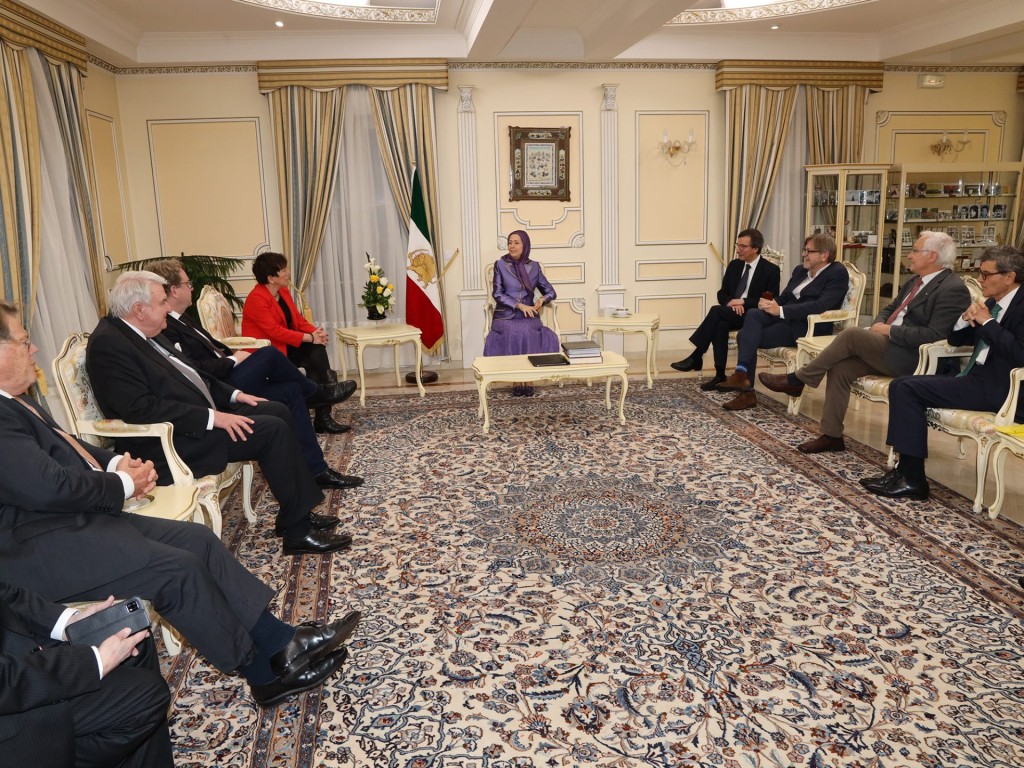Maryam Rajavi Meets with Former Belgian Prime Minister Guy Verhofstadt and a Delegation of German Parliamentarians and Dignitaries

On Saturday, December 7, 2024, Maryam Rajavi met with Guy Verhofstadt, who served as Prime Minister of Belgium from 1999 to 2008, and a distinguished delegation from Germany. The delegation included Bishop Professor Dr. Margot Käßmann, former Chair of the Evangelical Church in Germany; Carsten Müller, a member of the German Federal Parliament (Bundestag); Ambassador Hans-Ulrich Seidt, former Head of the Inspection Department at Germany’s Federal Foreign Office; Dr. Rudolf Adam, former President of the Federal Academy for Security Policy; Leo Dautzenberg, Chair of the German Committee for Solidarity with a Free Iran and former member of the Federal Parliament; and Martin Patzelt, former member of the German Federal Parliament.
Maryam Rajavi highlighted the brutal violations of human rights in Iran and the alarming rise in executions, stating that the clerical regime has turned to foreign aggression and terrorism to mask its extensive, 45-year war against the Iranian people. She emphasized that over the past year, particularly in light of developments in Syria, the regime has emerged as the loser in its external conflicts and now faces an intensified crisis. Mrs. Rajavi further noted that the policy of appeasement has consistently served as a crutch for the regime, enabling its survival amidst mounting internal and external challenges.
Mr. Guy Verhofstadt stated that he had repeatedly addressed the destructive nature of the appeasement policy with the European Union’s High Representative for Foreign Affairs during sessions in the European Parliament. “How can such a regime be trusted?” he asked. Referring to the ongoing war in Ukraine and the conflict in the Middle East, he argued that there is no justification for continuing the appeasement strategy. Verhofstadt emphasized that merely sanctioning 200 individuals would not resolve the issue and called for more decisive and fundamental actions against the regime.
He pointed to developments in Syria, noting that the next domino effect is crucial and could occur rapidly. “The question is not whether the regime will fall but when it will collapse in Tehran,” he stated.
Mr. Leo Dautzenberg underscored the necessity of holding those responsible for crimes in Iran accountable. He highlighted the museum in Ashraf, which consolidates all the evidence of these atrocities. Echoing this sentiment, Mr. Carsten Müller emphasized the importance of prioritizing this issue on the international agenda.

